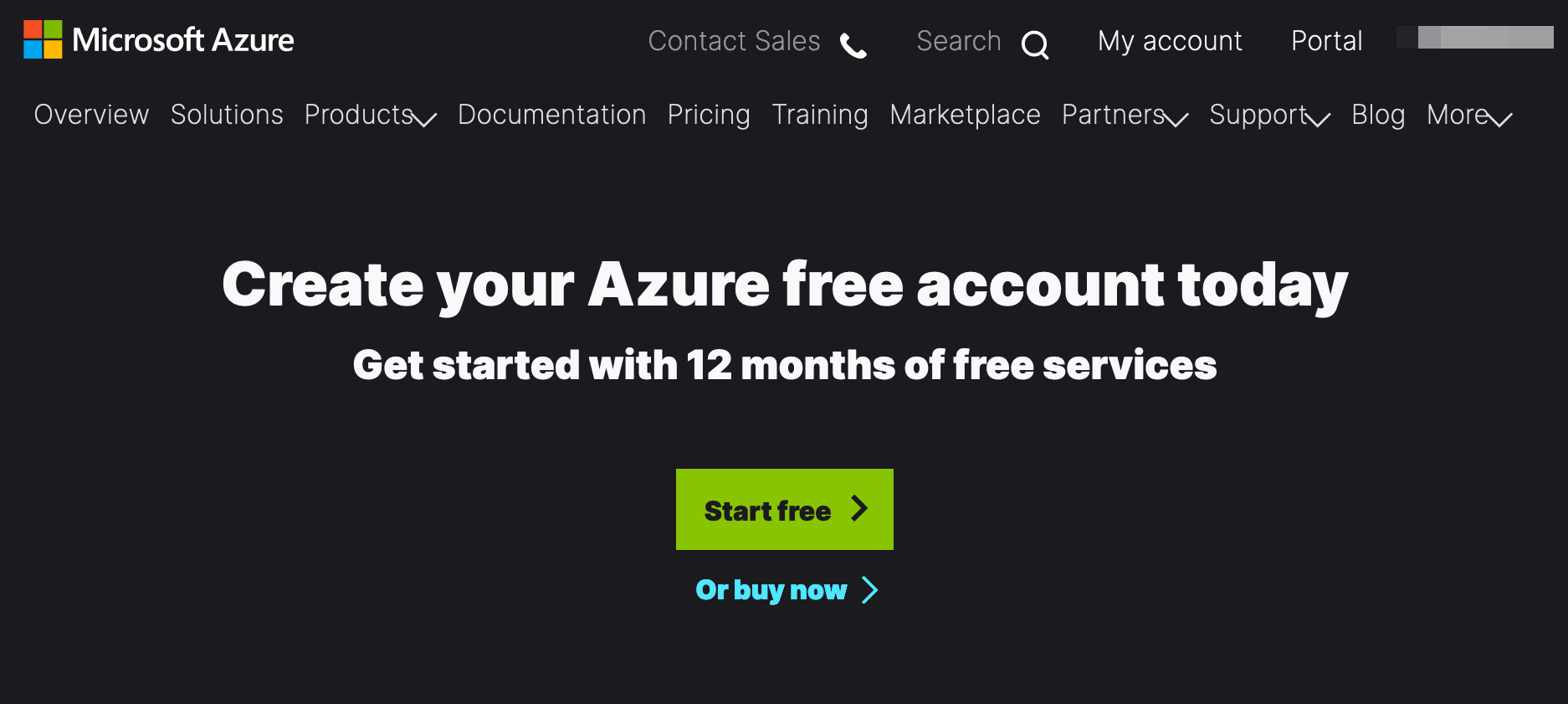Requirements
-
Shifter Headless site
-
GitHub repository
-
Microsoft Azure account
Also refer to official documents
-
Create and publish a static web app with Gatsby and Azure Static Web Apps
-
Tutorial: Publish a Gatsby site to Azure Static Web Apps Preview
Install “Gatsby CLI” and dependencies, if you haven’t
$ npm install -g gatsby-cliRefer to Gatsby’s official document Quick Start for more details.
Boot Shifter Headless website
1. Login to Shifter Headless dashboard
https://go.getshifter.io/admin/headless/
2. Start Headless WordPress
For more details, refer to another support document How to start Shifter Headless WordPress up.
3. Create any contents with logging in WordPress admin URL
We use theme unit test file for the document
You can download it directly: https://raw.githubusercontent.com/WPTRT/theme-unit-test/master/themeunittestdata.wordpress.xml
4. Copy WordPress URL
Document assumes WordPress URL is https://YOUR-WORDPRESS-URL.getshifter.co
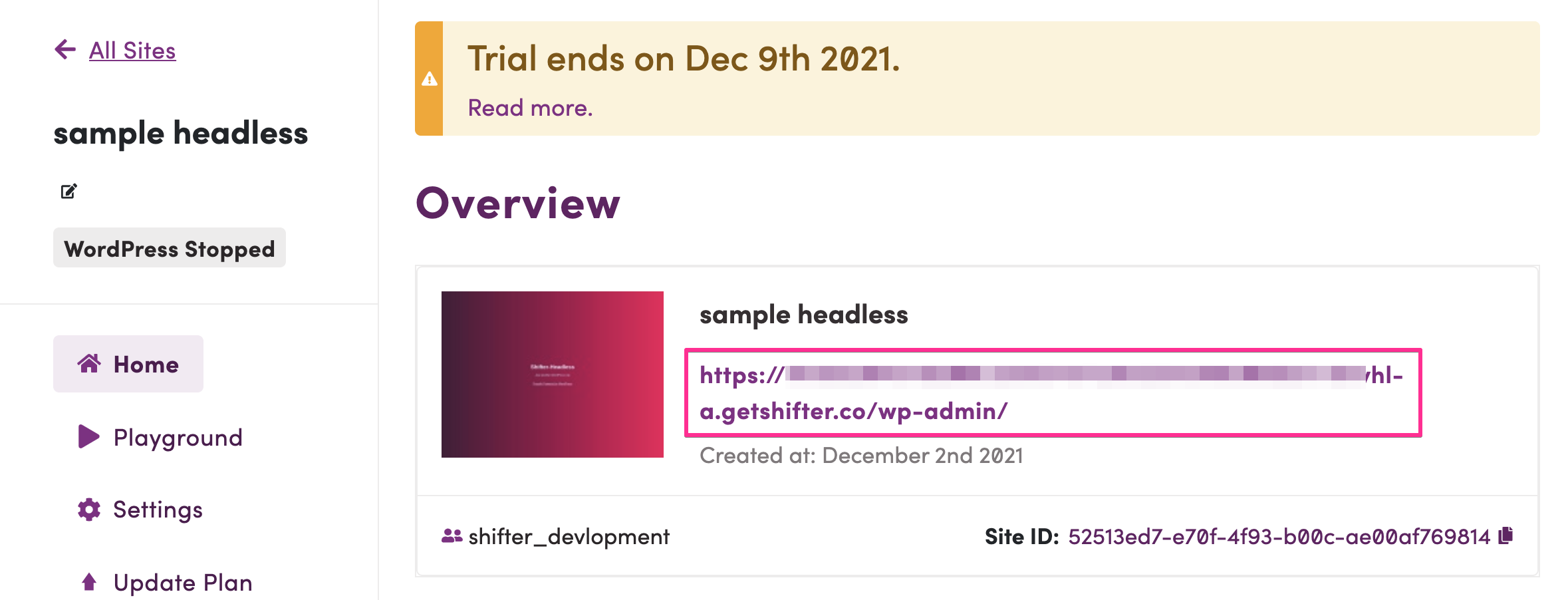
5. Keep WordPress running
Clone a repository for Azure Static Web Apps
Navigate to our starter repository
https://github.com/getshifter/gatsby-starter-wordpress-typescript
1. Click [Fork]
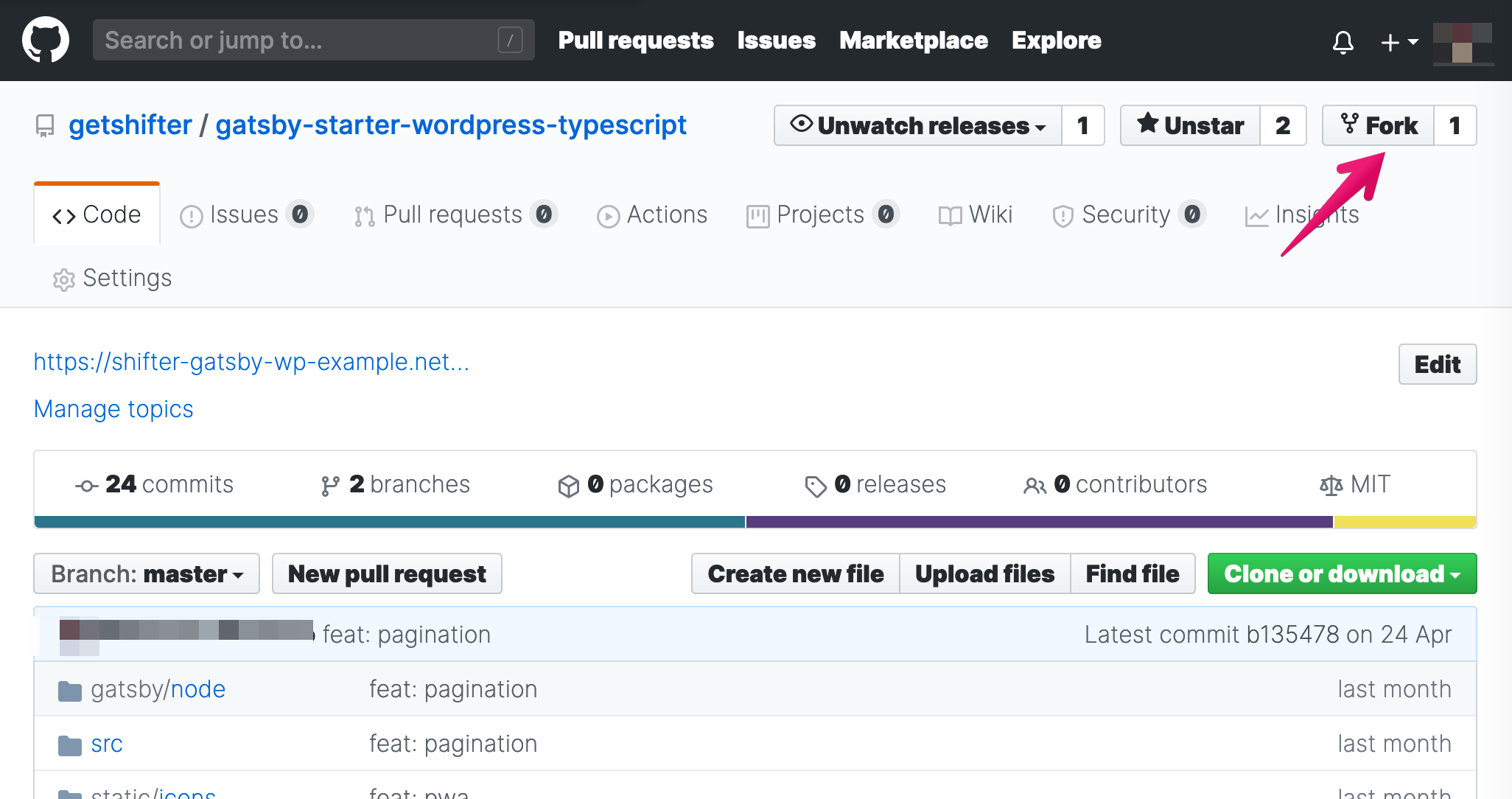
2. The repository has been forked as “gatsby-starter-wordpress-typescript”
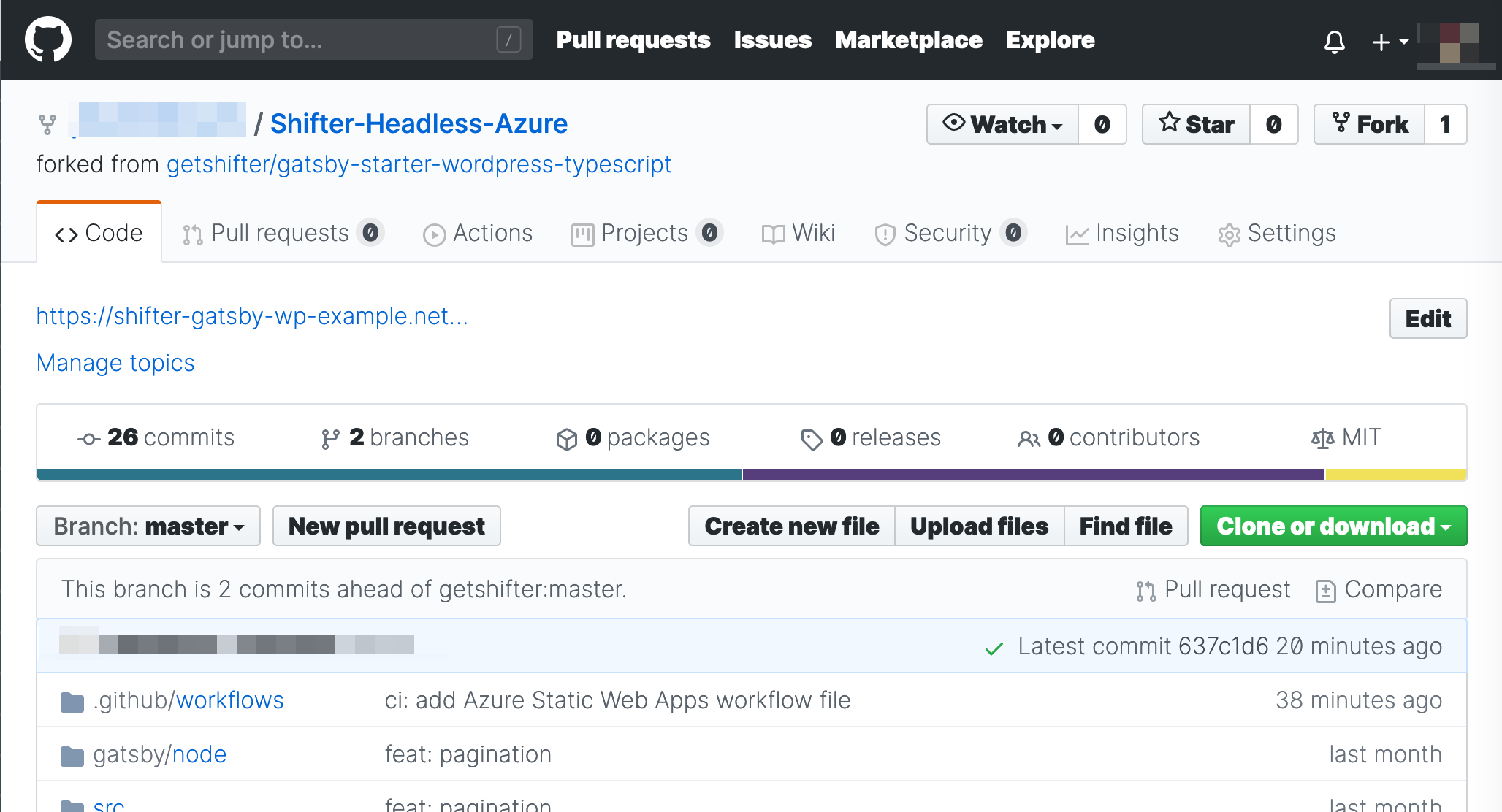
3. Click [Clone or download] to copy repository’s URL
URL will be git@github.com:YOUR-GITHUB-UERNAME/gatsby-starter-wordpress-typescript.git
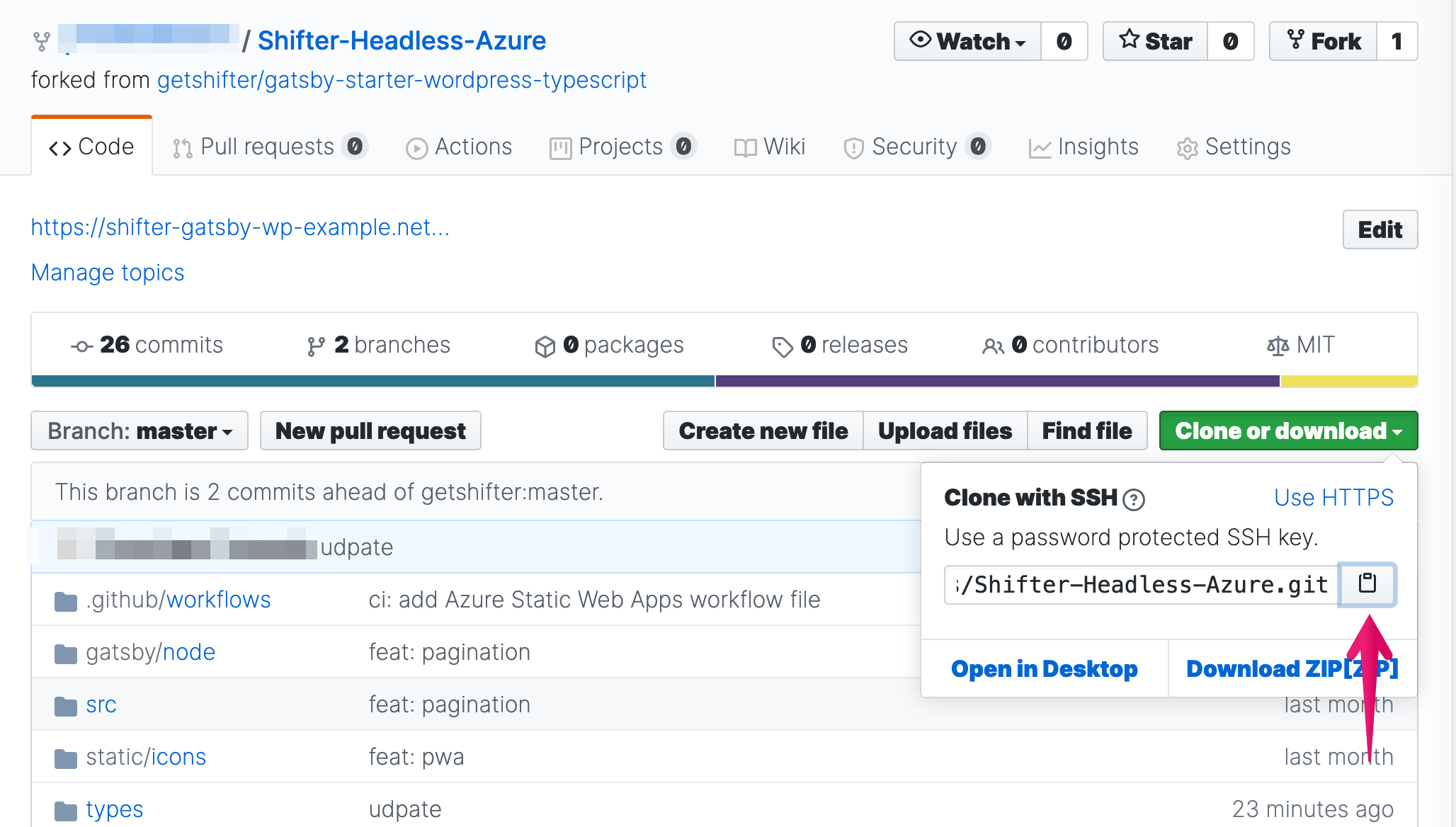
4. Clone to the local
$ git clone git@github.com:YOUR-GITHUB-USERNAME/gatsby-starter-wordpress-typescript.git ./gatsby-starter-wordpress-typescript5. Edit gatsby-config.js with text editor or vi command
You should update some values
5-1. Dive into cloned directory. In this sample, it’s a gatsby-starter-wordpress-typescript .
$ cd gatsby-starter-wordpress-typescript
5-2. Rewrite baseURL in line 23 to your WordPress URL without https://
baseUrl: "YOUR-WORDPRESS-URL.getshifter.co",5-3. [Optional] Rewrite searchAndReplaceContentUrls section
From
// Search and Replace Urls across WordPress content.
// searchAndReplaceContentUrls: {
// sourceUrl: "https://central.wordcamp.org",
// replacementUrl: "https://localhost:8000",
// },to
// Search and Replace Urls across WordPress content.
searchAndReplaceContentUrls: {
sourceUrl: "https://YOUR-WORDPRESS-URL.getshifter.co"",
// replacementUrl: "https://localhost:8000",
},And save changes.
6. Commit the changes.
$ git add .
$ git commit -m "update gatsby-config.js"
$ git push origin master7. Make sure commit has been succeeded with accessing your repository.
Create account set up Azure Static Web Apps
1. Open Microsoft Azure
https://azure.microsoft.com/en-us/free/
2. Sign in or create account if you haven’t one
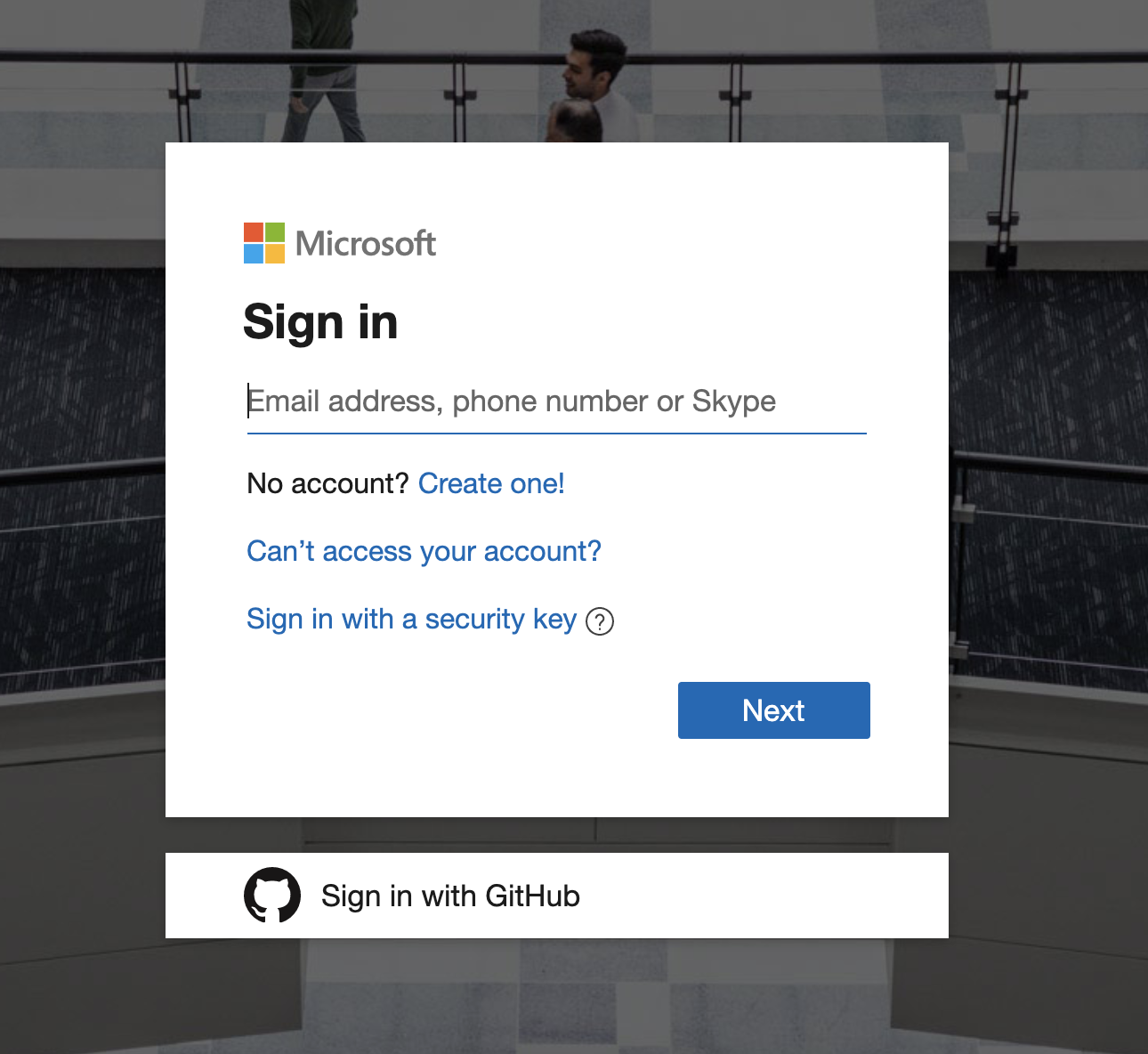
3. Navigate to Portal.Azure.com
https://portal.azure.com/?quickstart=true#allservices
After sign in or finished creating account navigate to the portal page
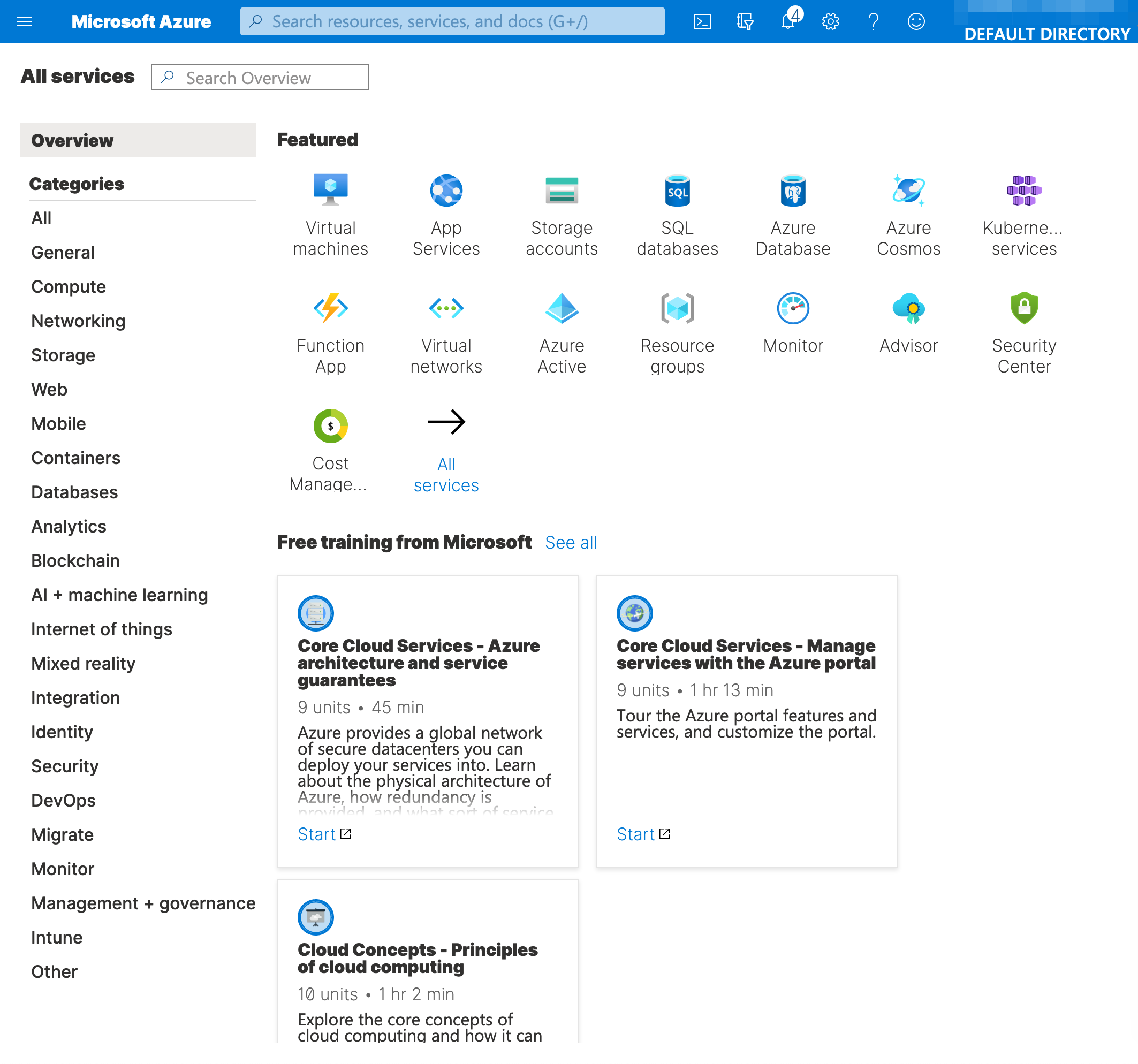
4. Search “static web apps” and click [Static Web Apps (Preview)]
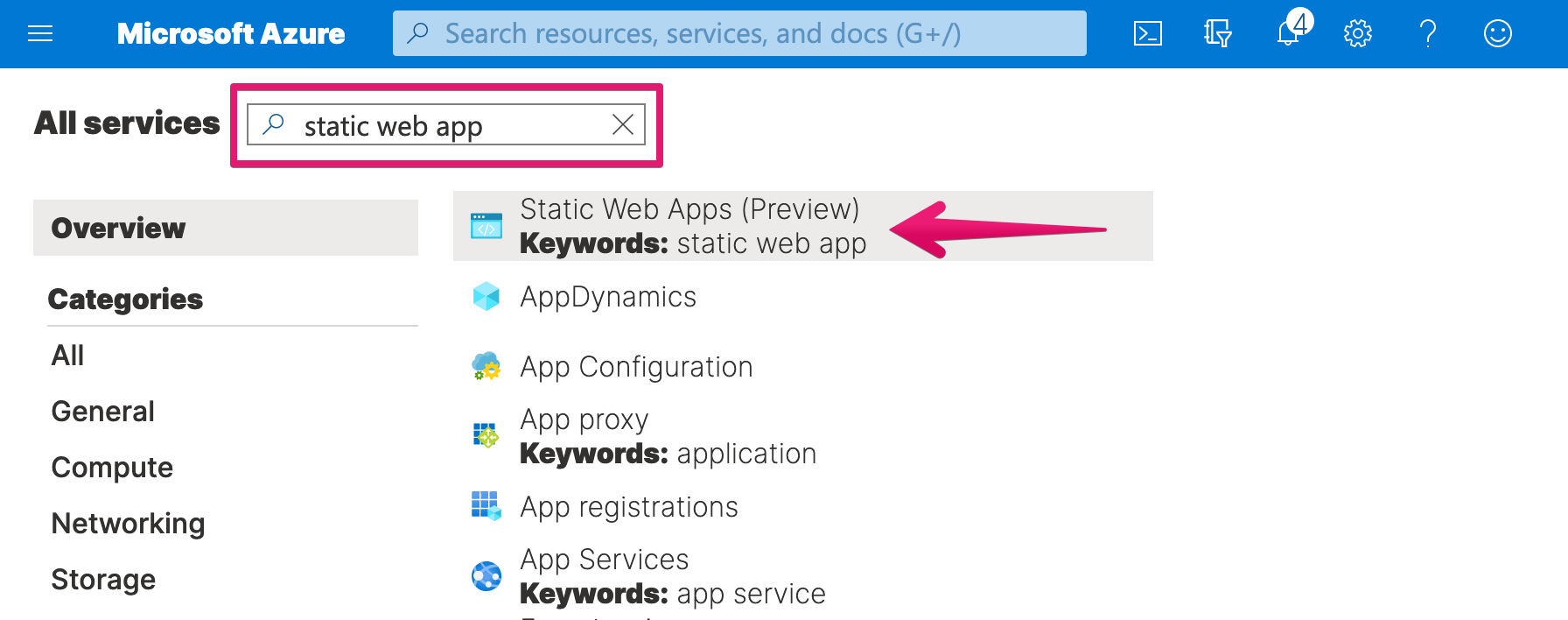
5. Click [Create static web app]
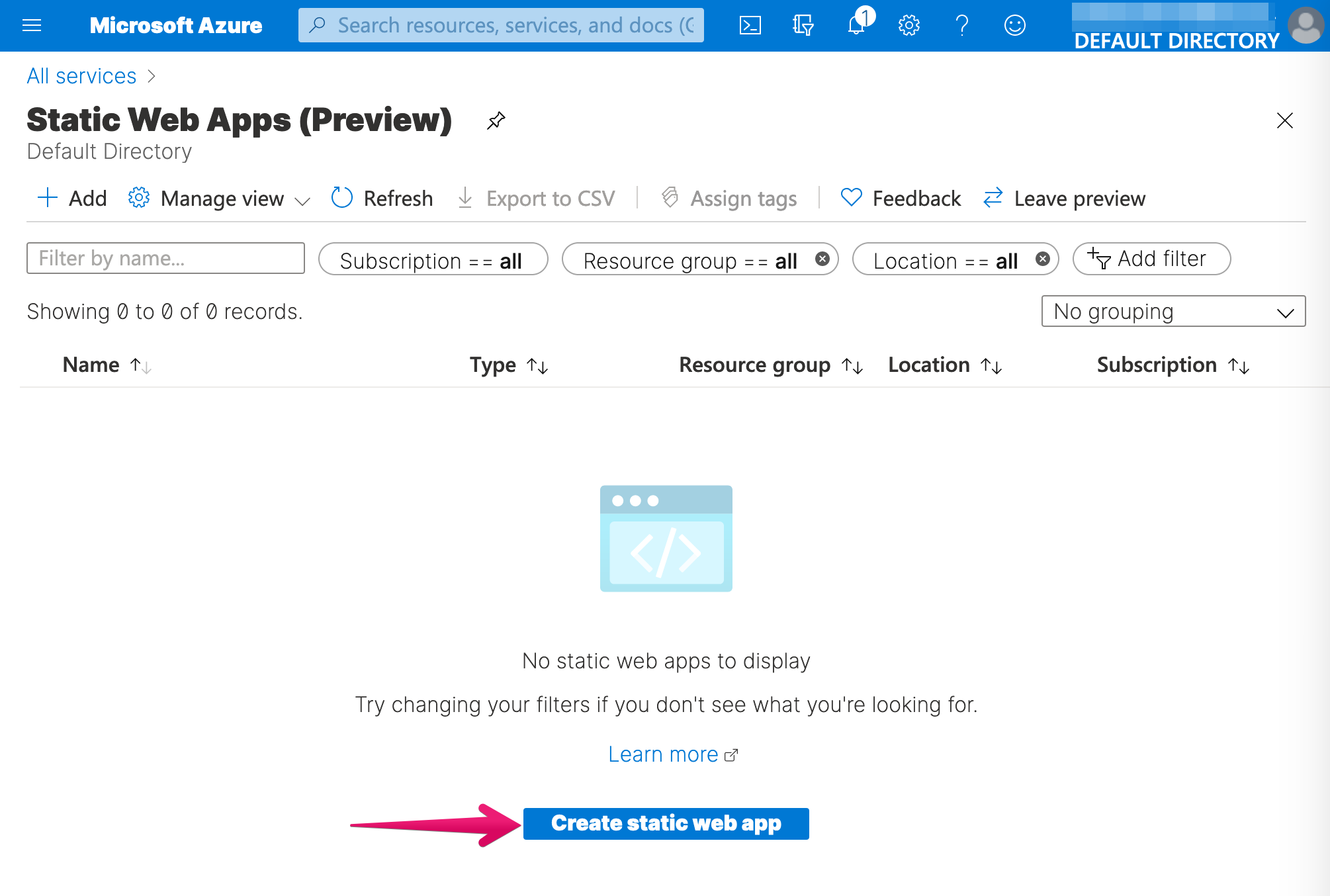
6. Fill in required fields and click [Sign in with GitHub] to connect your GitHub repository
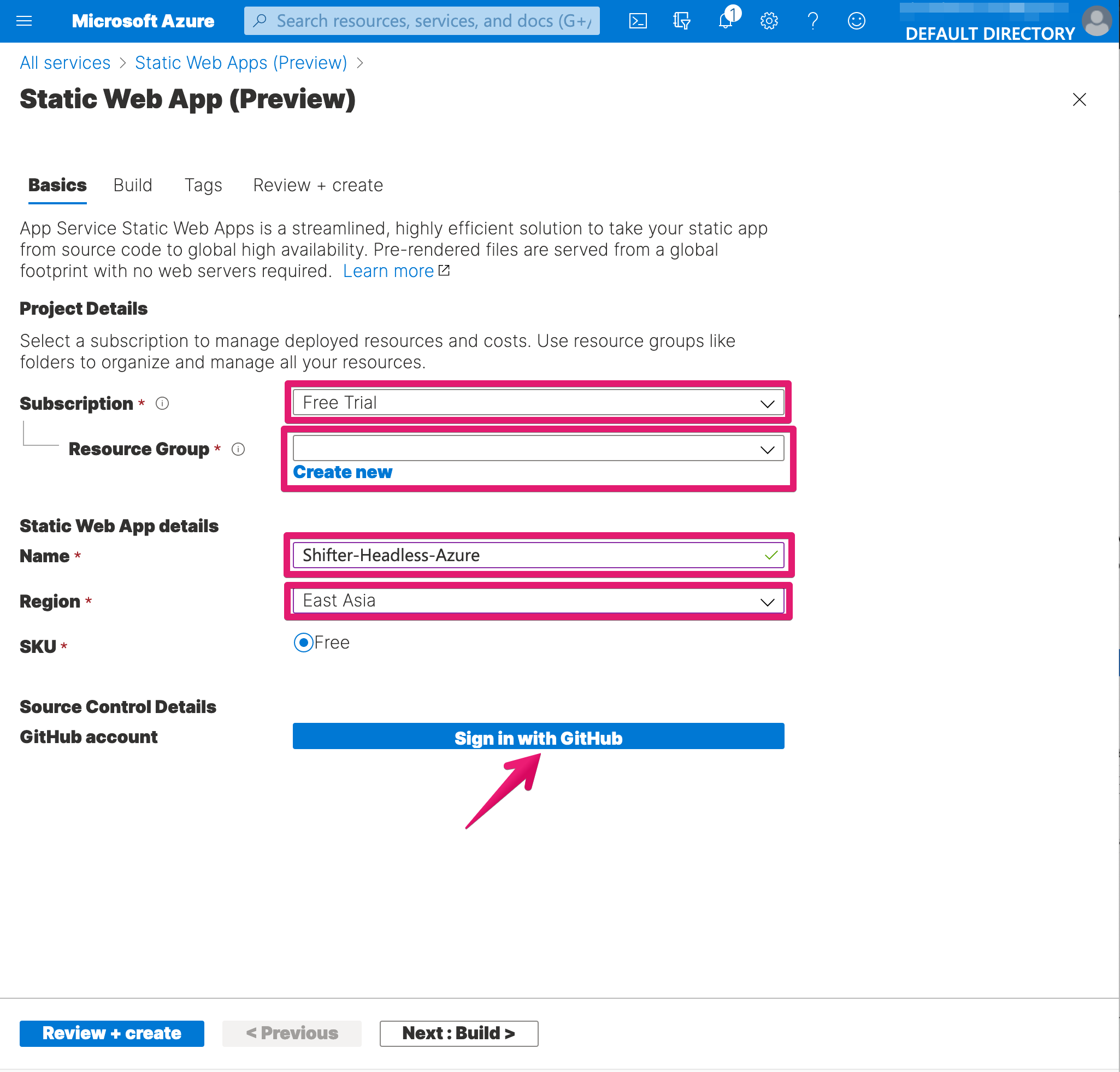
7. Click [Authorize Azure-App-Service-Static-Web-Apps] to authorise
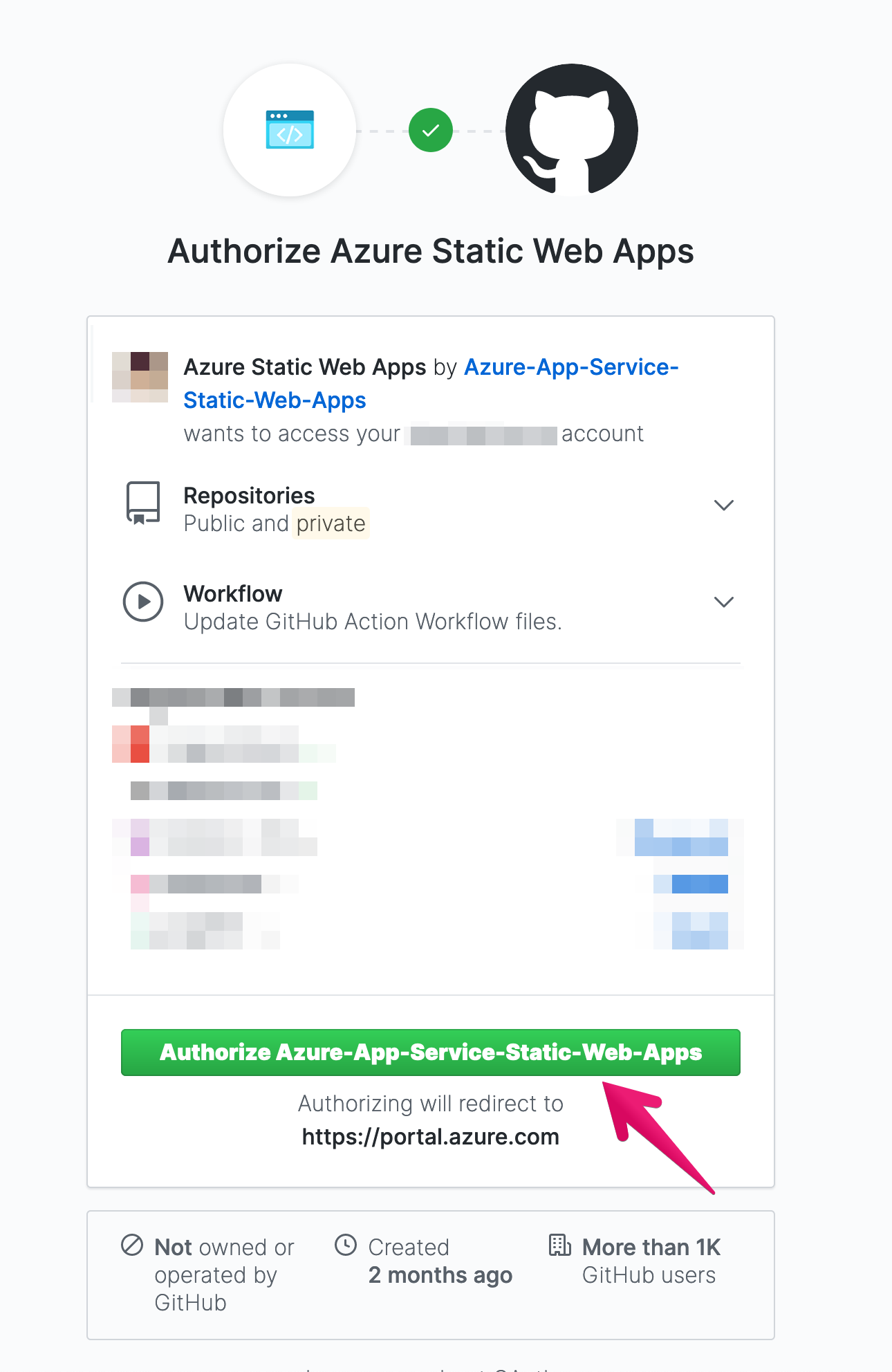
8. Fill in required fields and click [Next: Build>] button
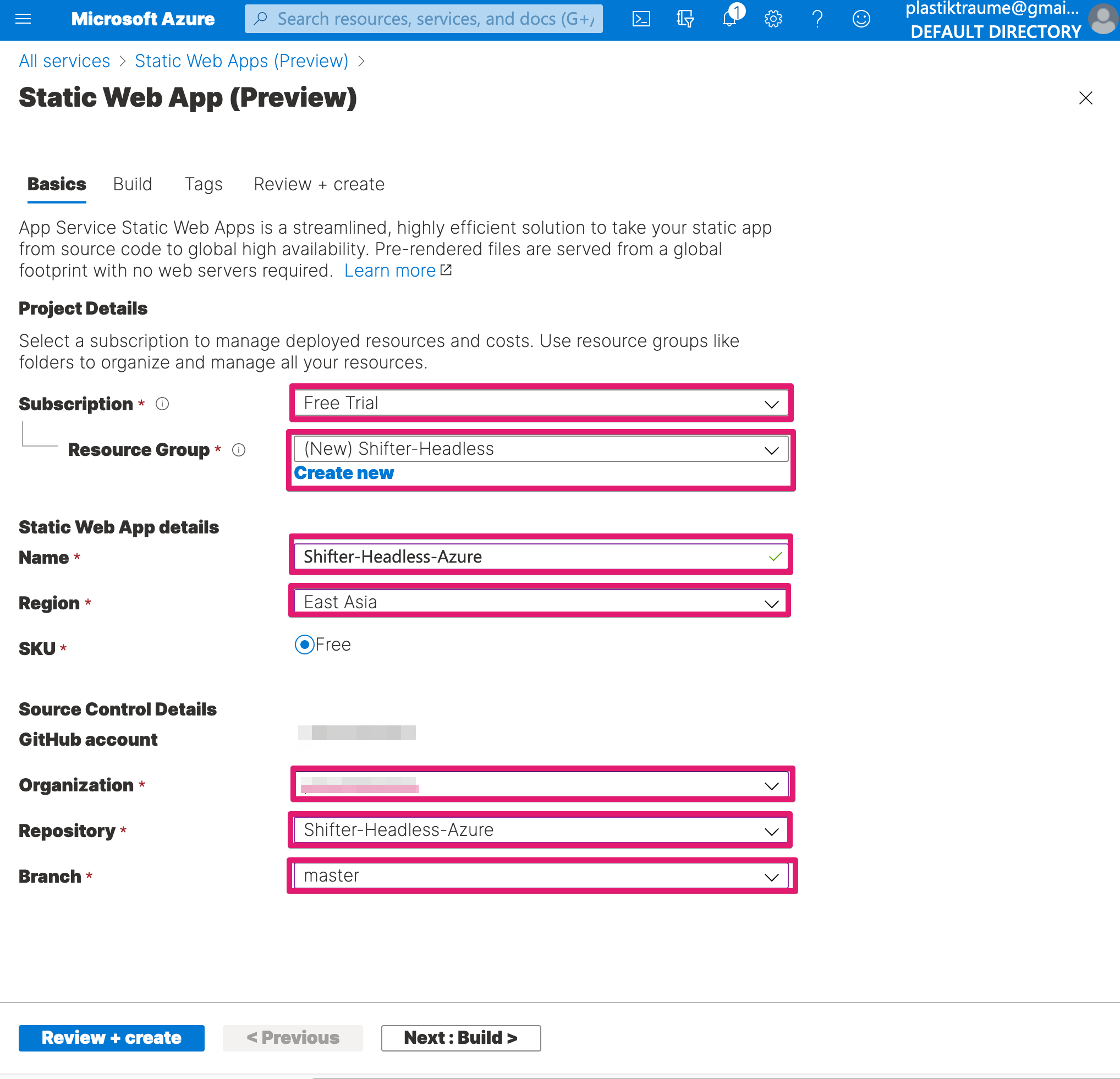
9. Fill in required fields and click [Review + create]
-
App location:
/ -
Api location:
api -
App artifact location:
public
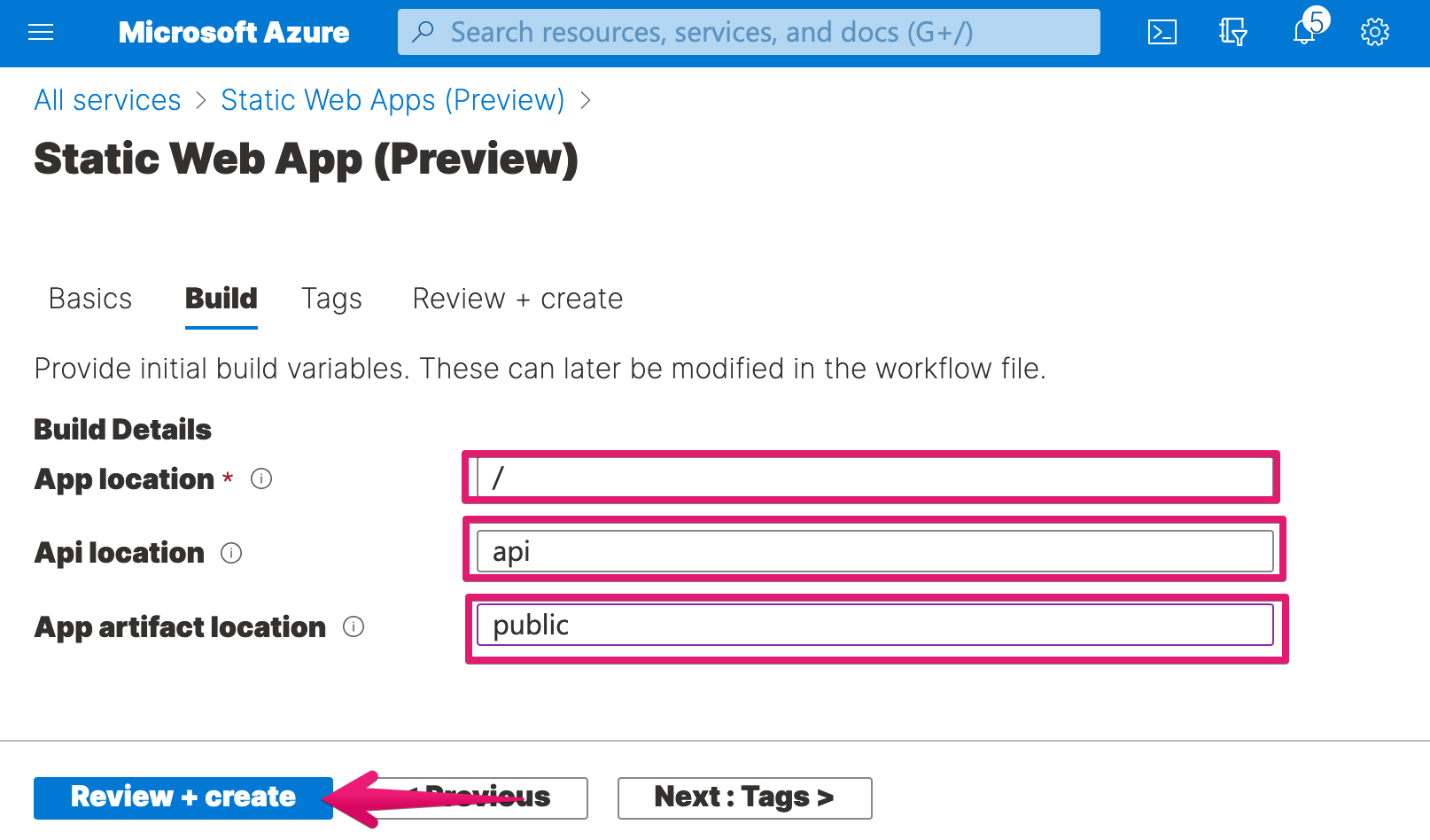
10. Click [Create]
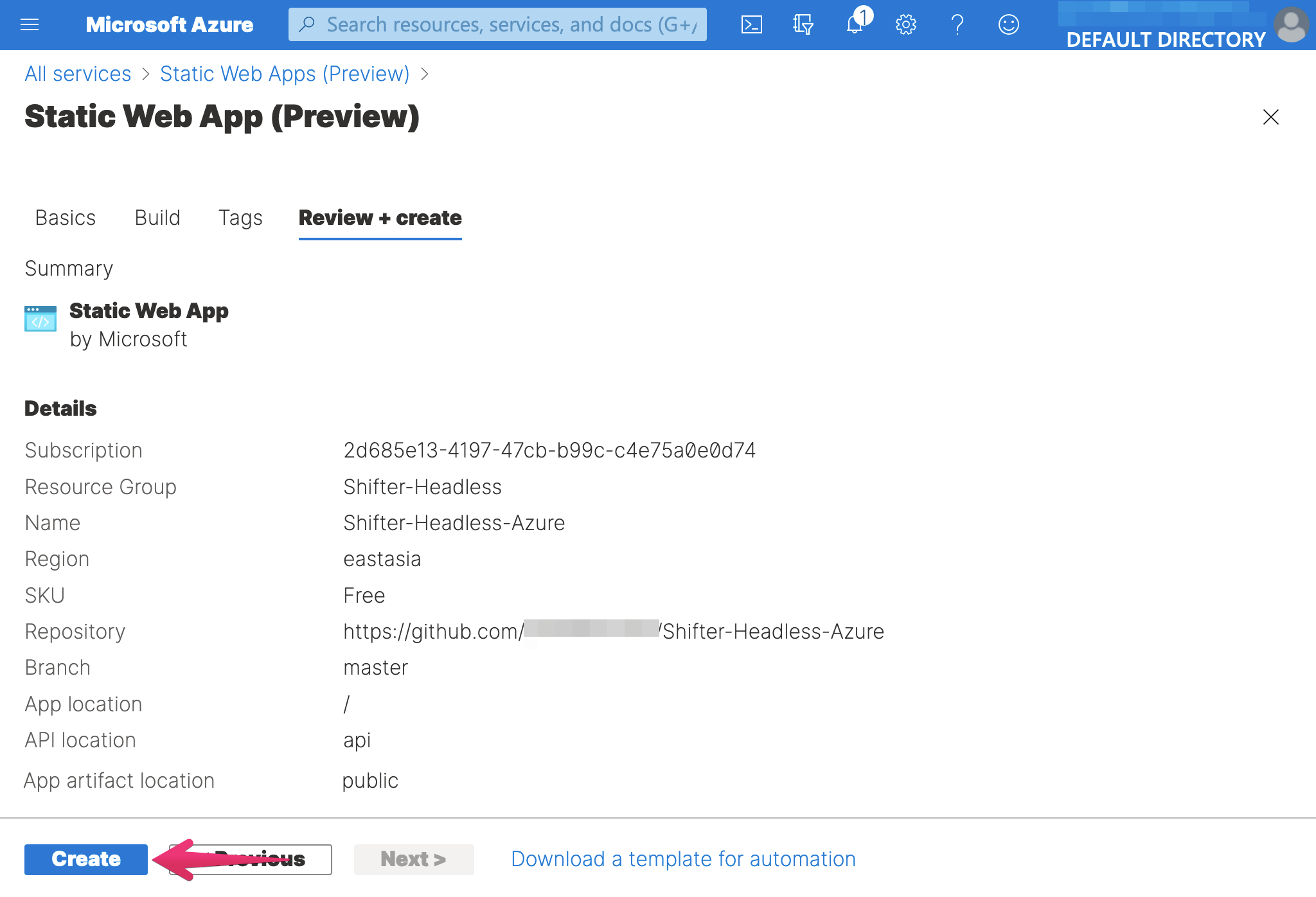
11. Navigate to Overview and copy URL of Azure Web Apps
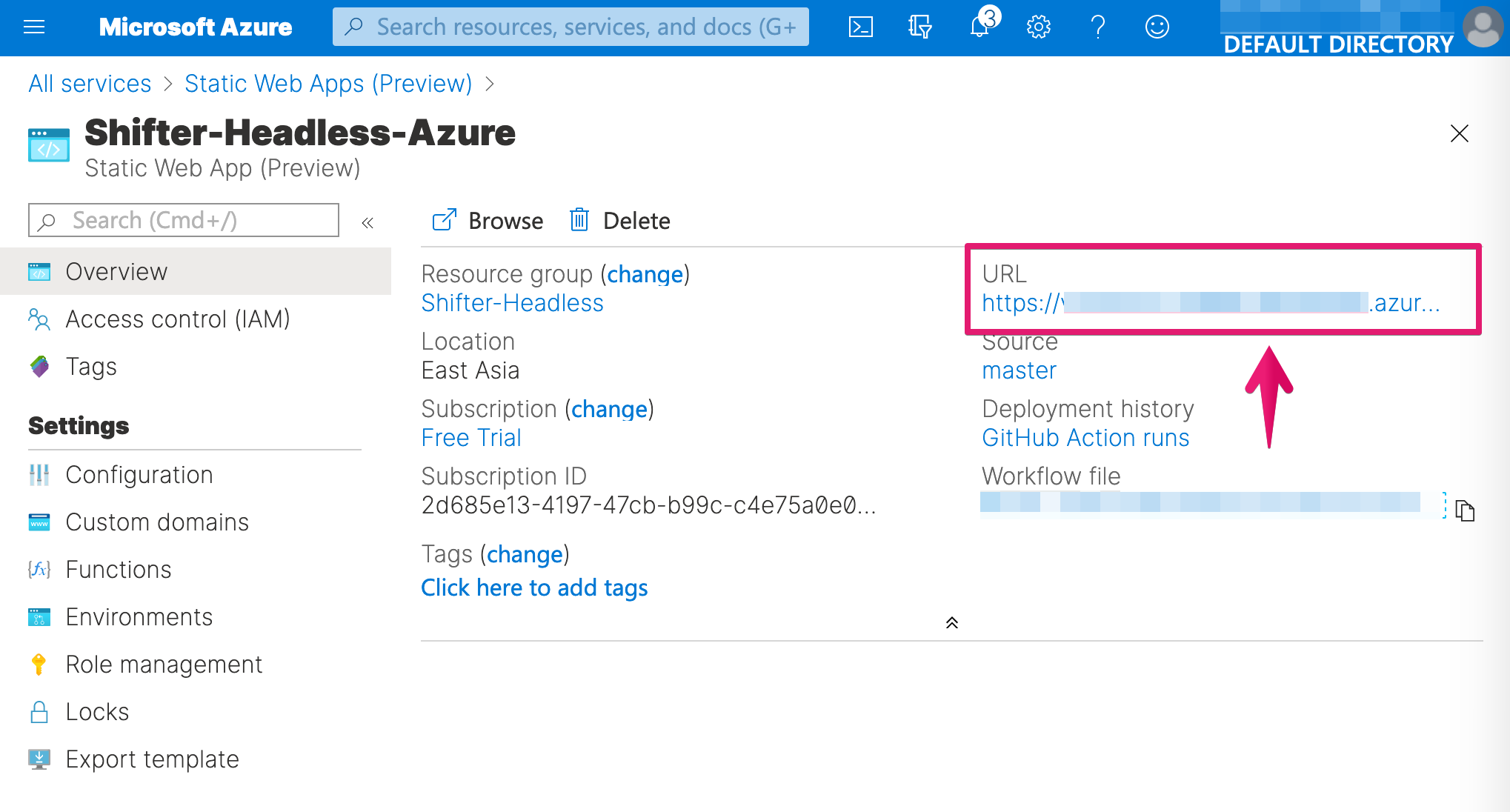
12. Click “Workflow file” to confirm GitHub Action had been created
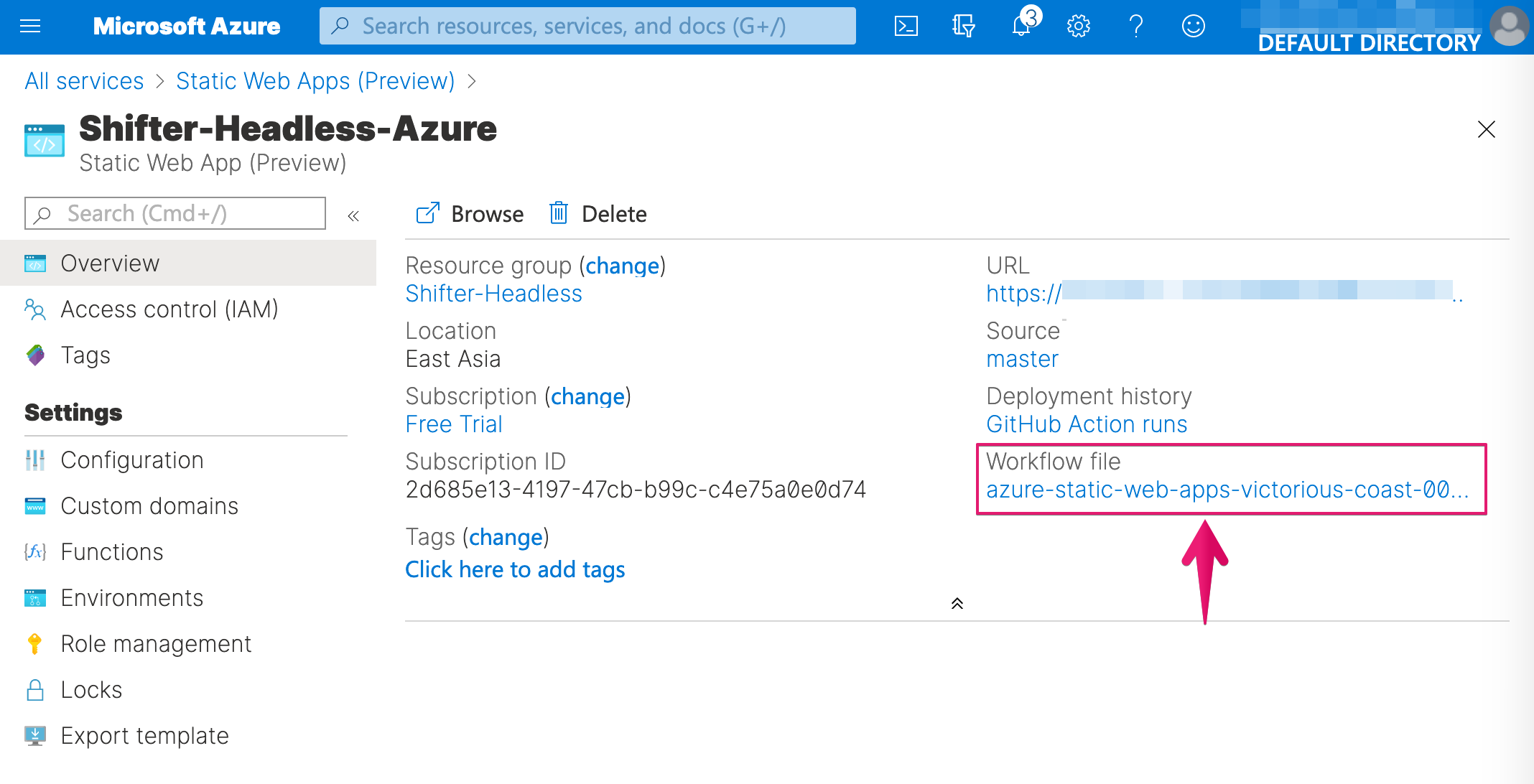
13. GitHub Action is created and the Azure’s workflow is also copied to the repository
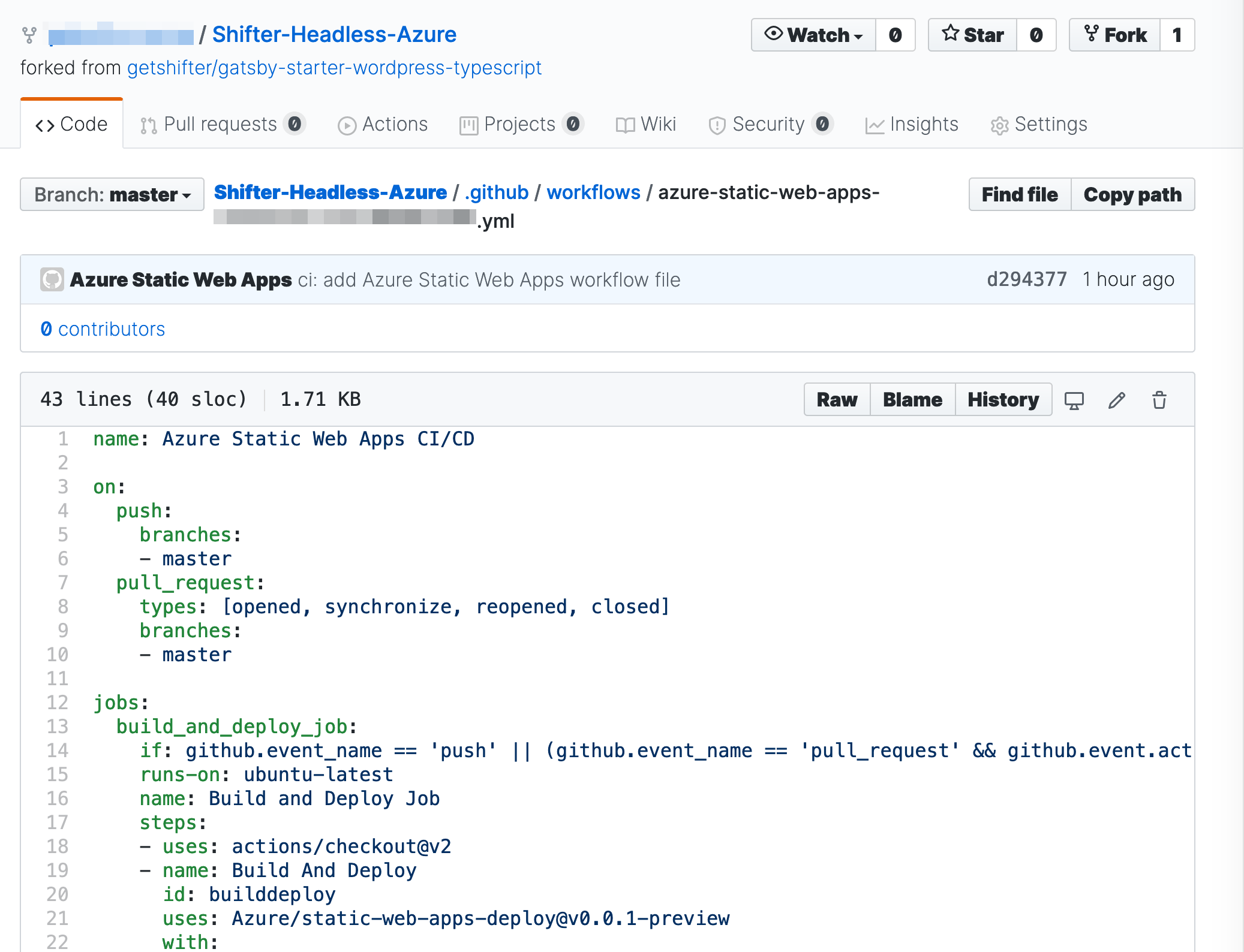
Working with the starter kit for Gatsby
1. Back to cloned repository named gatsby-starter-wordpress-typescript to local
2. Install npm
$ npm install
3. Run “gatsby develop” command to boot server and check contents
$ gatsby develop
[......]
-> wordpress__POST fetched : 40
-> wordpress__PAGE fetched : 19
[......]
You can now view gatsby-starter-wordpress-typescript in the browser.
⠀
http://localhost:8000/
⠀
View GraphiQL, an in-browser IDE, to explore your site's data and schema
⠀
http://localhost:8000/___graphql
⠀
Note that the development build is not optimized.
To create a production build, use gatsby build
⠀
success Building development bundle - 12.461s4. Access provided URL with web browser
Open http://localhost:8000/ with Firefox, GoogleChrome, Edge or anything else, you’ll get sample page:
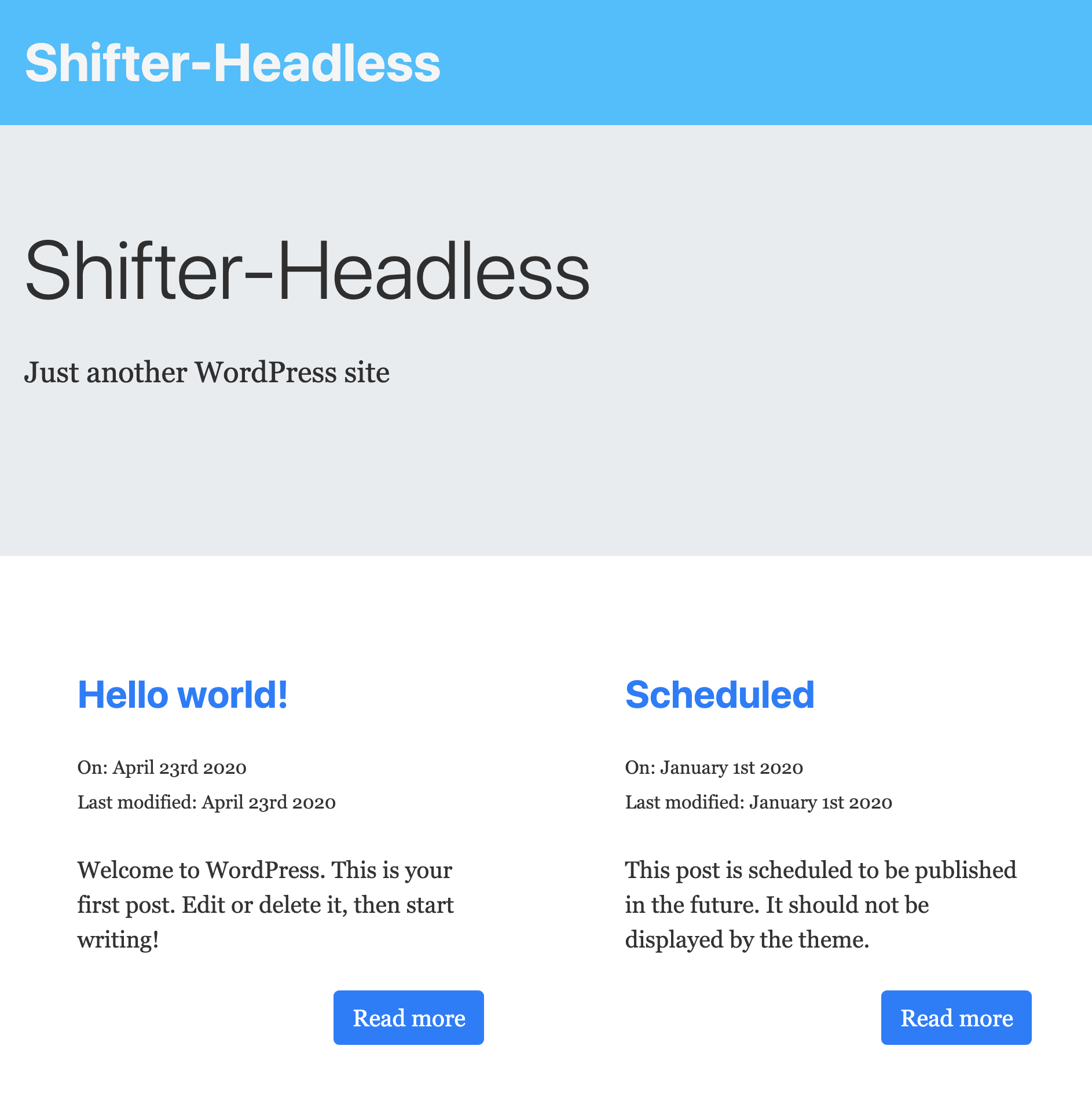
5. Hit [Ctrl] with [C] key to stop local server
6. Build static files for deploying
Run gatsby build command, you’ll get contents which are generated to static files into public directory.
$ gatsby build
success open and validate gatsby-configs - 0.032s
success load plugins - 2.378s
success onPreInit - 0.005s
success delete html and css files from previous builds - 0.036s
success initialize cache - 0.013s
success copy gatsby files - 0.103s
success onPreBootstrap - 0.020s
success createSchemaCustomization - 0.003s
-> wordpress__POST fetched : 40
-> wordpress__PAGE fetched : 19
[.....]
⠀
success Building production JavaScript and CSS bundles - 12.085s
success Rewriting compilation hashes - 0.006s
success run queries - 12.560s - 6/6 0.48/s
success Building static HTML for pages - 3.154s - 66/66 20.93/s
info Generated public/sw.js, which will precache 6 files, totaling 236235 bytes.
The following pages will be precached:
/offline-plugin-app-shell-fallback/index.html
success onPostBuild - 0.077s
info Done building in 56.884 sec7. And commit your files
$ git add .
$ git commit -m "My first Gatsby's website with Azure"
$ git push origin master
Enumerating objects: 53, done.
Counting objects: 100% (53/53), done.
Delta compression using up to 16 threads
Compressing objects: 100% (49/49), done.
Writing objects: 100% (53/53), 265.62 KiB | 1.74 MiB/s, done.
Total 53 (delta 5), reused 0 (delta 0), pack-reused 0
remote: Resolving deltas: 100% (5/5), done.
To github.com:YOUR-GITHUB-USERNAME/gatsby-starter-wordpress-typescript.git8. Make sure your repository has been updated
Access your repository: https://github.com/YOUR-GITHUB-USERNAME/gatsby-starter-wordpress-typescript
9. Navigate to “Actions” tab and confirm it completed to run
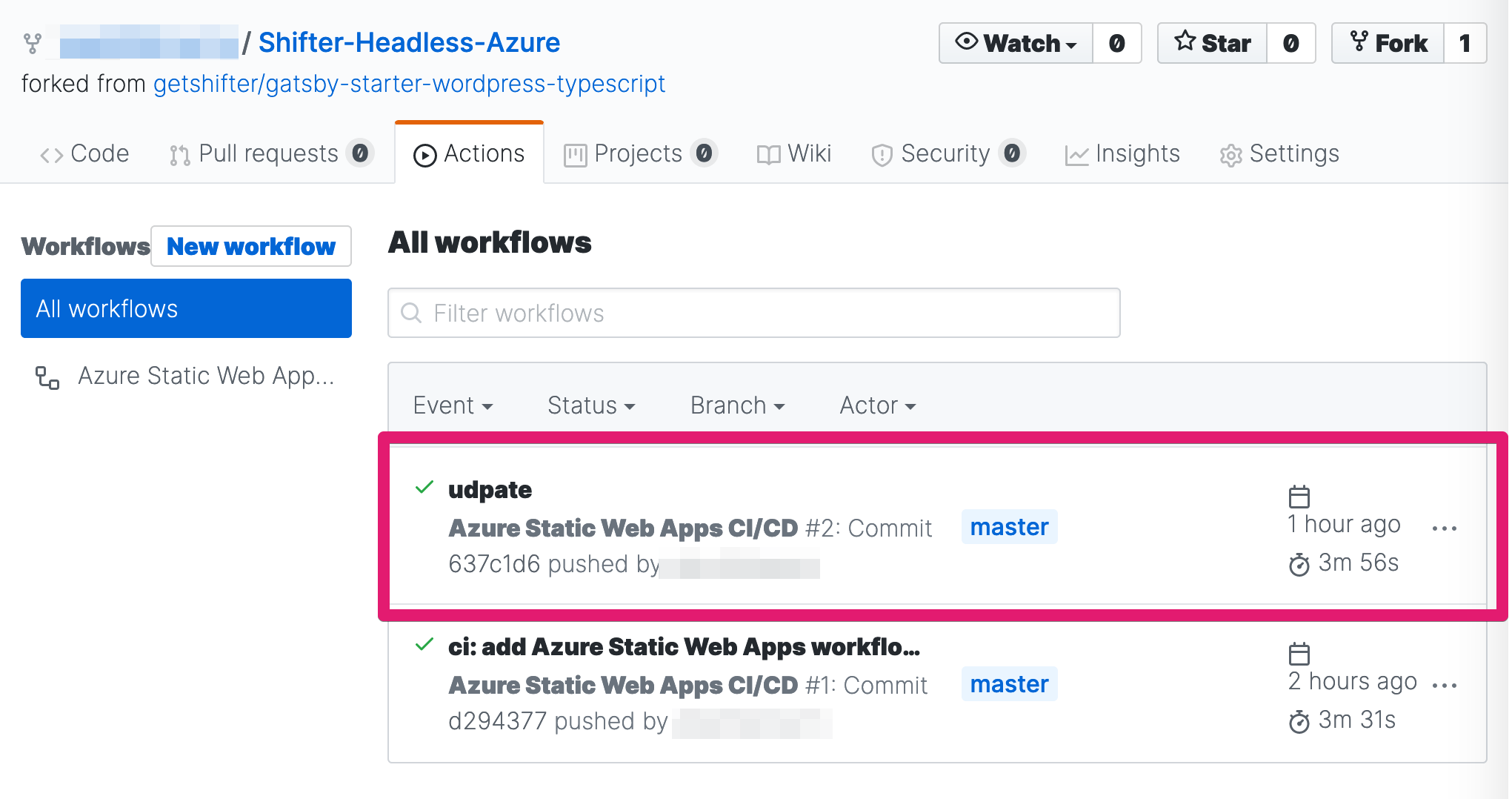
10. Access Azure Web Apps URL with your web browser
You’ll get the contents
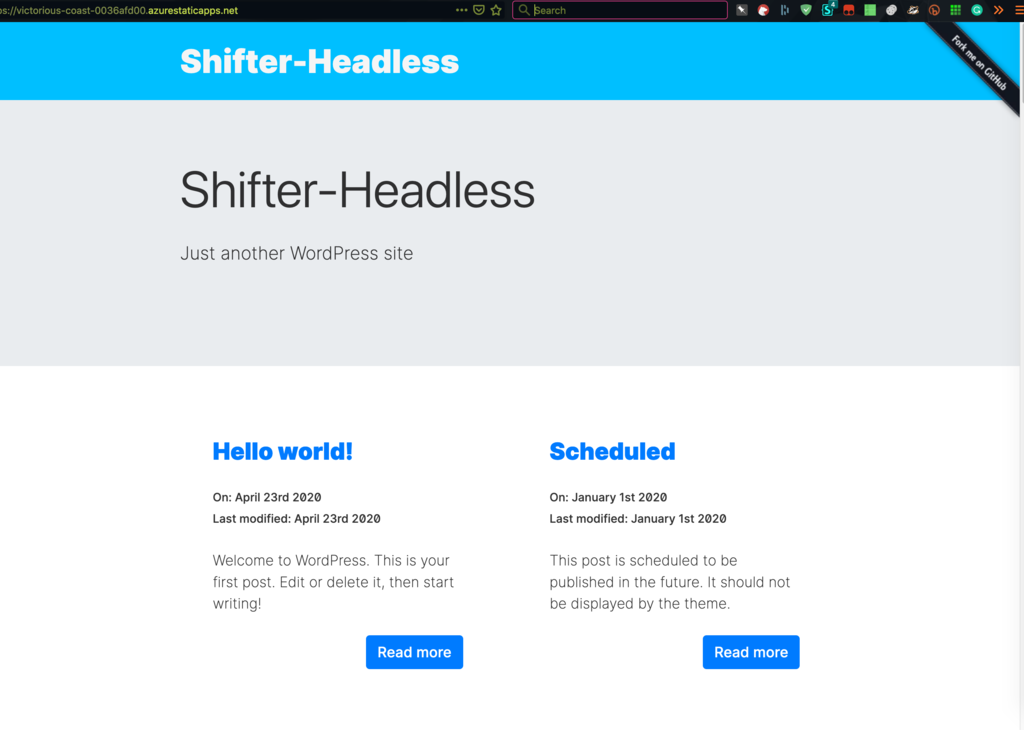
Also, you can add the URL to iPhones home use as a PWA
That’s all
